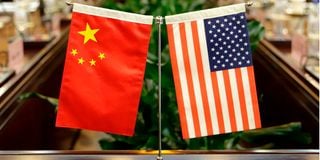Premium
US tightens chip export controls to China

China dominates the supply chain through massive investments in mining operations, particularly in Africa.
The United States announced new export controls Friday aimed at restricting China's ability to buy and manufacture high-end chips with military applications, stepping up tensions between the countries.
The moves complicate Beijing's push to further its own semiconductor industry and develop advanced military systems, and come days ahead of a major party congress in China at which President Xi Jinping is expected to secure a historic third term.
The rules, announced by the US Department of Commerce, include export restrictions on some chips used in supercomputing, and toughen requirements on the sale of semiconductor equipment.
The aim is to prevent "sensitive technologies with military applications" from being acquired by China's military, intelligence and security services, said Commerce Department official Alan Estevez in a statement.
The manufacture and export of semiconductors has been a subject of competition between the two countries, as they battle for tech dominance.
In August, US President Joe Biden signed into law a multibillion dollar bill boosting domestic semiconductor and other high-tech manufacturing sectors that US leaders fear risk being dominated by China.
Tens of billions of dollars more were allocated for scientific research and development.
China has poured resources into developing supercomputing capabilities and seeks to become a world leader in artificial intelligence by 2030, said another Commerce Department official, Thea Kendler.
But the country "is using these capabilities to monitor, track, and surveil their own citizens, and fuel its military modernization," Kendler said, adding that the latest actions protect US national security.





